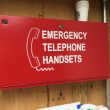Stay with what works
For years now I have been threatening to cancel the wireline phone service to my home. It’s not that the service is bad; to the contrary, it is quite good. But it’s also not cheap, especially considering that almost none of us use the service. We all have wireless phones, and given the enormous bucket of minutes we share and the convenience factor, we just don’t seem to have as much use for Ma Bell anymore.
What keeps me from following through on the threat is the skittishness of my wireless service. You have no idea — well, maybe you do — how many times calls are dropped or how often the voice quality is so poor that I have to place the call again. And again. It gets very frustrating. So Ma Bell continues to receive a monthly check from me.
This came to mind as I was reading Donny Jackson’s cover story (page 46), which reports on the performance of land mobile radio systems in Florida and along the Gulf Coast during the four catastrophic hurricanes that struck the region over a six-week period. Recently, I wrote an article for Telephony, another Primedia Business publication, on how the commercial wireless services fared during the crises. The answer is not well, as some of them lost as much as half their networks at the height of the carnage.
When a catastrophe strikes, people usually take in stride things that normally would drive them berserk. I remember on Sept. 11, 2001, that people generally were forgiving when their calls wouldn’t go through, intuitively understanding that the networks were overwhelmed. I imagine the same thing occurred in Florida during and after the storms. When a Category 3 or 4 hurricane comes through, you instinctively figure that a few antennas might have been knocked askew or a few towers blown down.
However, first responders aren’t everyday people. When your life is on the line and you spend your working days saving the lives of others, you need a radio system that works first time, every time, no matter what. The LMR industry should be proud of its work as evidenced by how well its systems performed during the hurricanes. And bottom line-conscious public officials should keep this in mind when they think about replacing LMR systems with less-expensive commercial push-to-talk systems. The adage is true — you get what you pay for.

















